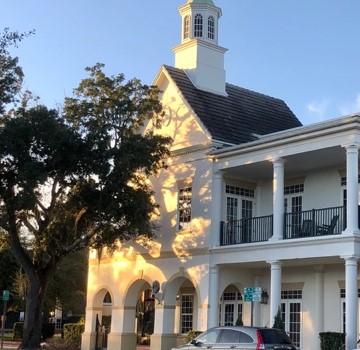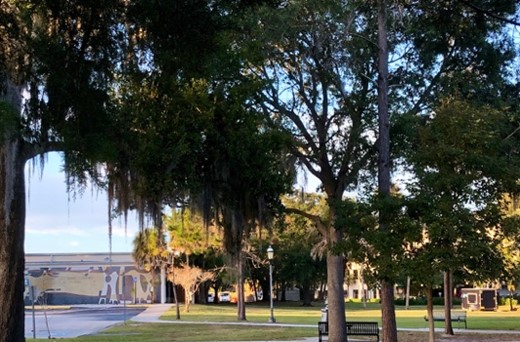Charter Amendments on March Ballot
Voters Will Decide on Super-Majority Voting Requirements
by Anne Mooney / January 13, 2022
In addition to choosing candidates for Commission seats #3 and #4, the March 8 ballot will ask voters to decide on six amendments to the City Charter requiring a Super-Majority vote in certain instances. The so-called Super-Majority is four out of five Commission votes; currently, Commission actions need only a Simple Majority of three out of five votes.
Winter Park goes back and forth on the subject of Super-Majority votes. The last time it came around was in 2014, when the Commission passed an ordinance abolishing Super-Majority votes. What one Commission can enact, the next Commission can repeal.
Only voters can decide
This time, instead of having the Commissioners decide by ordinance, the Commissioners have chosen to let the voters decide the question in the form of amendments to the City Charter. Charter Amendments passed by voters can only be repealed by voters.
Super-Majority votes can be wonky, boring, complicated subject matter – and it can also have a profound effect on the way our City will develop and grow into the future.
The ballot questions ask voters if they want a higher bar — four out of five Commission votes — in six distinct situations. To cast informed votes, voters must understand each situation – so hang in there.
All ballot questions will refer to Sections 2.08 and 2.11 of the Winter Park City Charter. We have left out that verbiage here to save your eyes and your patience, but you will see the language on the ballot. To read the full ballot questions, click here: https://cityofwinterpark.org/government/election-info/. This language also will appear on Sample ballots, which will be mailed February 18.
Question #1 – Sale of City-Owned Property
“Shall . . . the Charter be amended to require at least four of five members of the city commission to vote in favor to approve the conveyance of . . . city-owned property?”
Simply put, if the City wanted to sell a piece of property it owns, like City Hall or the Welcome Center, four Commissioners would have to vote in favor.
Question #2 – Rezoning Parks & Public Lands
“Shall . . . the Charter be amended to require at least four of five members of the city commission to vote in favor to (i) approve . . . rezoning of city-owned park land; and (ii) approve rezoning or change of use of land currently zoned public and quasi-public district or zoned parks and recreation district.”
The rezoning of parks and recreation land is pretty straightforward. If this amendment passes, parks and recreation land, such as the West Meadow, could not be changed to another use without four of the five Commission votes.
Public and Quasi-public (PQP) rezoning is more complicated, as it is not limited to uses one might ordinarily associate with public spaces. PQP zoning can include schools and uses associated with schools, like gyms, dorms, bookstores, dining halls, theaters etc., post offices, parking lots, museums, medical care facilities, nursing and convalescent homes and assisted living complexes, public utility services, uses in performance of governmental services, churches and community service organizations, along with a host of uses associated with facilities of this sort.
Commissioner Carolyn Cooper said of this proposed amendment, “I do think changing use in property that is currently serving the public and creating part of our collective public realm should receive the support of an overwhelming majority of local leaders before its use is redirected.” Cooper also pointed out that many of the PQP uses serve only a narrow group and pay no taxes.
Question #3: Residential and Lakefront Property Map Amendments
“Shall . . . the Charter be amended . . . [for] rezoning (i) from a residential to a non-residential category, or (ii) lakefront property from a residential use to a commercial use, mixed-use, medium density residential use or high density residential use?”
This amendment would make it more difficult for higher density types of development of single-family residential property, particularly lakefront single-family residential. It would also provide increased protection for residential communities against commercial encroachment.Question #4: Density and Intensity Increases
“Shall . . . the Charter be amended . . . rezoning that increases the maximum allowed residential units per acre (density) or floor area ratio (intensity) by more than twenty-five percent from the existing maximum allowed density or intensity of use?”
This amendment would require four of the five Commission votes to increase density (units per acre) and intensity (square footage) of development by more than 25 percent.
Question #5: Development in Wetlands
“Shall . . . the Charter be amended to require at least four of five members of the city commission to vote in favor of . . . development within wetlands?”
Question #6: Ordinance Changes During Adoption Process
“Shall . . . the Charter be amended to require an additional public meeting and reading of a proposed ordinance . . . if, during the adoption process either (i) a substantive or material change is made, or (ii) a change is made to a proposed zoning or comprehensive plan amendment ordinance resulting in an increase in the maximum allowed density or intensity of uses or a change to the permitted uses?”
If, in the process of adopting an ordinance, a substantive change occurs in the language of the proposed ordinance, the meeting at which the change occurs will be considered the “First Reading” of the ordinance, and there will be an additional noticed public meeting and another Reading and the public will have the opportunity speak to that change.






Vote YES!
Vote YES !
Hey Watch Dog!
Wake up from your nap.
Anderson is trying to turn Winter Park into International Drive.
This City Commission is only, maybe 5% better for residents than the Leary/Sprinkel City Commission was.
Winter Park misses your news and opinion.
So, start sniffing around, Watch Dog, and go hunt up something for us to read on WP Watchdog!
Vote NO!
Vote OFTEN!
The deadline for City Commission candidates filing is rapidly approaching.
https://www.timeanddate.com/countdown/generic?iso=20220118T12&p0=867&msg=WP+Candidate+Filing+Deadline&font=serif
I speak as one of the 6 to10 macroagressions in Winter Park that Pitt Warner mentioned in his WPV Facebook post.
Even though macroagression is not a word, so there is no actual meaning for it, I will accept the honorary title.
According to Pitt Warner, in a City of 30,000 residents there are only 6 to 10 of us who want village scale, charm, a place to park our car, the ability to drive from one end of town to the other without having to stop for gas on the way due to sitting in traffic all day, something that resembles a library that is conveniently located for us to get to with some regularity without having to change our tires twice a year and walk a mile once we get there to do so, the ability to open our windows sometime during the next decade without hearing a dump truck, cement mixer, crane, or roofer.
We’d rather hear the breeze and the birds singing, thank you.
We want to live in a city where we don’t have to worry that our City Commission might turn our neighborhood park into a museum, a parking garage, a hotel, or a Costco..
We want to live in a city where residents are allowed a say in what goes on here, not just realtors and stacked “Task Forces.”.
While we appreciate our neighbors to the south, we don’t want Winter Park to become Disney World, Sea World, or International Drive.
We have too many hotels already.
We have too many apartments already.
We have too much commercial development already.
It’s not that we don’t want to “grow.” It’s that we don’t want to SHRINK our green space, our quality of life, and our patience.
Winter Park should be a city where people can raise their kids and grandkids, not just a town where developers and realtors can get rich.
If that makes us “macroagressions,” well, I guess that’s what we are, and maybe, just maybe, there are a whole lot more of us here than Pitt Warner would like to admit.
Amen and Proud to be a macro aggressor!
Why is it the “super minority extremists” are always winning!?
Bravo!!!!
It has always been my vision that Winter Park was, is and should remain in the future a “Premier Urban Village.” The six proposed Charter Amendments will help to carry out that vision. Therefore, I will vote YES on the six amendments. JOE TERRANOVA, FORMER MAYOR OF WINTER PARK
Macroaggression has said everything perfectly! Thank you for that well stated comment.
While I support the six amendments it should be clear that all development is not bad. Neither is all development good. Growth and development should be evaluated on the merits of each project. To say we already have too many apartments, too many hotels, too many of anything when you don’t even know what’s coming in the future is short-sighted and narrow minded. It is possible to maintain the charm and ambience of Winter Park and still grow, change and develop with wisdom and intelligence. No growth leads to stagnation. All growth leads to ugly sprawl. Be smart. Be open. Be willing to change with the times.
Yes if we could trust the fellows in charge